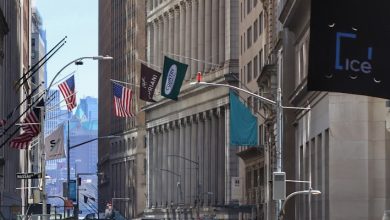Ripple vs SEC: Latest Developments in the Legal Battle

- Overview of the Ripple vs SEC legal battle
- Key arguments from both Ripple and the SEC
- Recent court rulings and their impact on the case
- The role of XRP in the legal battle
- Potential outcomes and implications for the cryptocurrency industry
- Analysis of public opinion on the Ripple vs SEC lawsuit
Overview of the Ripple vs SEC legal battle
The legal battle between Ripple and the SEC has been ongoing for several months, with both parties presenting their arguments in court. The SEC alleges that Ripple’s XRP token is a security and should be regulated as such, while Ripple maintains that XRP is a digital currency like Bitcoin and Ethereum. The outcome of this case could have far-reaching implications for the cryptocurrency industry as a whole. Ripple has been fighting back against the SEC’s allegations, arguing that the case could stifle innovation and harm investors. The company has also accused the SEC of acting in bad faith and failing to provide clear guidance on the regulatory status of digital assets. The SEC, on the other hand, claims that Ripple conducted an unregistered securities offering worth over $1.3 billion through the sale of XRP tokens. The legal battle between Ripple and the SEC is being closely watched by the cryptocurrency community and could set an important precedent for how digital assets are regulated in the future.
Key arguments from both Ripple and the SEC
Ripple and the SEC have presented key arguments in the ongoing legal battle, each side presenting their case strongly. Ripple has emphasized the decentralized nature of XRP and its utility as a digital asset for cross-border payments. They argue that XRP is not a security and should not fall under the jurisdiction of the SEC. Additionally, Ripple claims that they have been transparent in their operations, working with regulators to ensure compliance with existing laws.
On the other hand, the SEC contends that XRP should be classified as a security, as it was created and distributed by Ripple Labs. The SEC alleges that Ripple engaged in an unregistered securities offering worth over $1.3 billion, violating investor protection laws. The SEC argues that Ripple’s executives, including CEO Brad Garlinghouse and co-founder Chris Larsen, personally benefited from the sale of XRP, further solidifying their case against the company.
These arguments from both Ripple and the SEC highlight the complex legal issues at play in this case. The outcome of this legal battle could have far-reaching implications for the cryptocurrency industry as a whole, setting a precedent for how digital assets are regulated in the United States. As the legal proceedings continue, both parties are preparing to present further evidence and arguments to support their respective positions in court.
Recent court rulings and their impact on the case
In recent court rulings, the judge denied the SEC’s request to access Ripple’s legal advice. This decision could have a significant impact on the case as it limits the SEC’s ability to gather evidence against Ripple. The judge emphasized the importance of attorney-client privilege, which is a fundamental legal principle that protects the confidentiality of communications between a client and their lawyer.
Furthermore, the court ruled in favor of Ripple by granting access to internal SEC documents that could potentially shed light on the agency’s decision-making process regarding cryptocurrencies. This development is seen as a win for Ripple, as it could help bolster their defense against the SEC’s allegations.
Overall, these recent court rulings have had a mixed impact on the Ripple vs SEC legal battle. While the denial of access to Ripple’s legal advice is a positive outcome for Ripple, the granting of access to internal SEC documents could potentially strengthen the SEC’s case. The legal battle between Ripple and the SEC continues to unfold, with both parties vying for a favorable outcome in this high-stakes cryptocurrency case.
The role of XRP in the legal battle
XRP, the native cryptocurrency of Ripple, has played a significant role in the legal battle against the Securities and Exchange Commission (SEC). The SEC alleges that XRP is a security, while Ripple argues that it is a digital asset. This distinction is crucial in determining the regulatory framework that applies to XRP.
One of the key arguments made by Ripple is that XRP has a real-world use case beyond being an investment vehicle. Ripple uses XRP in its cross-border payment solutions, which are designed to make international money transfers faster and more cost-effective. This utility argument is central to Ripple’s defense against the SEC’s allegations.
Furthermore, Ripple has pointed out that XRP has been traded on the open market for several years without any issues raised by regulators. This long history of XRP trading adds another layer of complexity to the legal battle, as Ripple argues that the SEC’s lawsuit is an overreach and sets a dangerous precedent for the cryptocurrency industry as a whole.
Potential outcomes and implications for the cryptocurrency industry
The ongoing legal battle between Ripple and the SEC has significant potential outcomes and implications for the cryptocurrency industry as a whole. Depending on the final ruling, this case could set a precedent for how other cryptocurrencies are regulated in the United States and around the world.
One possible outcome is that Ripple prevails in the case, which would provide clarity and confidence to other cryptocurrency projects. This outcome could lead to increased adoption and investment in the cryptocurrency market, as investors and developers gain more certainty about regulatory compliance.
On the other hand, if the SEC wins the case, it could have a chilling effect on the cryptocurrency industry. Other projects may face increased scrutiny and regulatory challenges, leading to a more cautious approach from investors and stakeholders. This could stifle innovation and slow down the growth of the industry as a whole.
Regardless of the outcome, the legal battle between Ripple and the SEC is shining a spotlight on the need for clearer regulations and guidelines for cryptocurrencies. The lack of regulatory clarity has been a longstanding issue in the industry, and this case could prompt policymakers to take action to provide more certainty for market participants.
Overall, the outcome of the Ripple vs SEC case will have far-reaching implications for the future of the cryptocurrency industry. It is crucial for stakeholders to closely follow the developments in this case and be prepared to adapt to any changes in regulatory environment that may result from the final ruling.
Analysis of public opinion on the Ripple vs SEC lawsuit
Public opinion on the ongoing legal battle between Ripple and the SEC is divided, with many individuals closely following the latest developments in the case. While some people believe that Ripple will ultimately prevail and settle the lawsuit in their favor, others are more skeptical about the outcome.
One common sentiment among supporters of Ripple is that the SEC’s allegations are unfounded and that the company has been unfairly targeted. They argue that Ripple’s XRP cryptocurrency should not be classified as a security and that the SEC is overstepping its bounds by pursuing legal action against the company.
On the other hand, critics of Ripple point to the SEC’s track record of successful enforcement actions and argue that the agency has a strong case against the company. They believe that Ripple’s sale of XRP tokens constitutes an unregistered securities offering and that the company will have a difficult time defending its actions in court.
Overall, the Ripple vs SEC lawsuit has sparked a lively debate within the cryptocurrency community, with opinions on the case varying widely. As the legal battle continues to unfold, it remains to be seen how public opinion will evolve and ultimately influence the outcome of the case.






